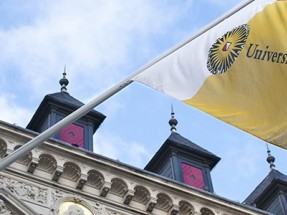Utrecht University: NWO Gravitation grant awarded to consortium - 20 million for research on plant probiotics
2019-08-30

The root microbiome is the community of bacteria and fungi that inhabit the interior and surface of plant roots, as well as the surrounding soil. The bacteria and fungi help mobilise nutrients from the soil, protect the plant against stresses such as drought, and play an import role in plant health. However, little is currently known about how plants recruit these friendly microorganisms and how they in turn assist and protect their hosts.
MiCRop
The project has been dubbed MiCRop and is a collaborative venture between the Utrecht University (Prof. Corné Pieterse), Wageningen University (Prof. Christa Testerink and Prof. Marcel Dicke), VU Amsterdam (Prof. Toby Kiers), Netherlands Institute of Ecology (Prof. Jos Raaijmakers) and the University of Amsterdam (Prof. Harro Bouwmeester, project leader).
Intricate immune system
"Plants have an intricate immune system to ward off pests and pathogens," explains Corné Pieterse, professor of Plant-Microbe Interactions at Utrecht University. "Plants are assisted by plant-beneficial microbes that can enhance the plant immune system and protect the plants against attack. In this project, we will investigate the mechanisms by which plants selectively recruit such plant probiotics and how these microbes in turn defend the plants against disease."
Improving agriculture
The project will investigate a large number of crucial food crops, such as cabbage, potatoes, tomatoes, beans, grains, cucumbers and pumpkins as well as their wild relatives. The researchers are not only concerned with acquiring fundamental knowledge, but also with its application. "We're working with some 25 partners from the plant breeding and biologicals industry," says project leader Harro Bouwmeester. "The collaboration with eight CGIAR institutes is also very important to us." CGIAR, the Consultative Group for International Agricultural Research, is a global, intergovernmental organisation dedicated to the improvement of agriculture and the global food supply, particularly in developing countries. According to Bouwmeester: "In these countries, in particular, there is much to gain in terms of improving plant tolerance to a multitude of stresses, such as drought and pests. With this study, we hope to make a significant contribution to that."
